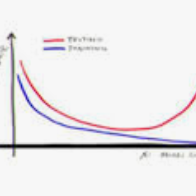Eye-in-hand cameras have shown promise in enabling greater sample efficiency and generalization in vision-based robotic manipulation. However, for robotic imitation, it is still expensive to have a human teleoperator collect large amounts of expert demonstrations with a real robot. Videos of humans performing tasks, on the other hand, are much cheaper to collect since they eliminate the need for expertise in robotic teleoperation and can be quickly captured in a wide range of scenarios. Therefore, human video demonstrations are a promising data source for learning generalizable robotic manipulation policies at scale. In this work, we augment narrow robotic imitation datasets with broad unlabeled human video demonstrations to greatly enhance the generalization of eye-in-hand visuomotor policies. Although a clear visual domain gap exists between human and robot data, our framework does not need to employ any explicit domain adaptation method, as we leverage the partial observability of eye-in-hand cameras as well as a simple fixed image masking scheme. On a suite of eight real-world tasks involving both 3-DoF and 6-DoF robot arm control, our method improves the success rates of eye-in-hand manipulation policies by 58% (absolute) on average, enabling robots to generalize to both new environment configurations and new tasks that are unseen in the robot demonstration data. See video results at https://giving-robots-a-hand.github.io/ .
翻译:暂无翻译



